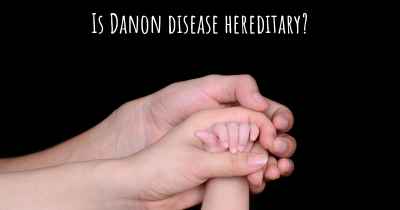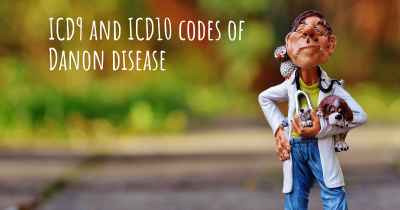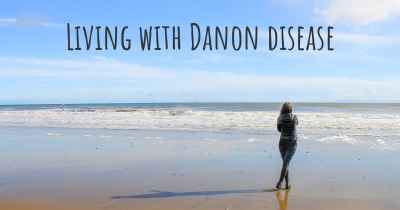What is the life expectancy of someone with Danon disease?
Life expectancy of people with Danon disease and recent progresses and researches in Danon disease

Danon disease is a rare genetic disorder characterized by the deficiency of lysosome-associated membrane protein 2 (LAMP2). This condition primarily affects the heart, skeletal muscles, and other organs. The life expectancy of individuals with Danon disease can vary significantly depending on the severity of symptoms and the management of complications. In severe cases, cardiac involvement can lead to heart failure and significantly impact life expectancy. However, with early diagnosis, appropriate medical care, and interventions such as heart transplantation, individuals with Danon disease may have improved outcomes and potentially longer life expectancy. It is crucial for patients to work closely with healthcare professionals to develop a personalized treatment plan and monitor their condition regularly.
Danon disease is a rare genetic disorder that primarily affects the heart, skeletal muscles, and intellectual development. It is caused by mutations in the LAMP2 gene, which is responsible for producing a protein involved in the breakdown and recycling of cellular components.
Life expectancy in individuals with Danon disease can vary significantly depending on various factors such as the severity of symptoms, age of onset, and access to appropriate medical care. Unfortunately, due to the rarity of the condition and limited long-term studies, it is challenging to provide an exact life expectancy range.
However, it is important to note that Danon disease is generally considered a progressive and potentially life-threatening condition. The disease primarily affects the heart, leading to the development of cardiomyopathy (weakening of the heart muscle) and arrhythmias (abnormal heart rhythms). These cardiac complications can significantly impact the overall prognosis.
Early-onset cases of Danon disease, typically presenting in childhood or adolescence, tend to have a more severe disease course. These individuals often experience rapid disease progression and may develop severe heart failure or arrhythmias at a young age. In such cases, life expectancy may be significantly reduced.
On the other hand, individuals with a later onset of symptoms, particularly in adulthood, may have a relatively milder disease course. They may experience a slower progression of cardiac symptoms and have a better prognosis compared to those with early-onset disease.
Timely diagnosis and appropriate management are crucial in improving the outcomes for individuals with Danon disease. Regular cardiac monitoring, including electrocardiograms (ECGs) and echocardiograms, can help detect and manage cardiac complications early on. Medications such as beta-blockers and angiotensin-converting enzyme (ACE) inhibitors may be prescribed to manage heart function and symptoms.
In some cases, individuals with severe cardiac involvement may require heart transplantation to improve their prognosis and quality of life. However, it is important to note that transplantation is not a cure for Danon disease, and careful evaluation of the risks and benefits is necessary.
Furthermore, individuals with Danon disease may also experience skeletal muscle weakness and intellectual disabilities. Physical therapy and supportive care can help manage these symptoms and improve overall quality of life.
Genetic counseling is essential for individuals and families affected by Danon disease. Understanding the inheritance pattern and the potential risks of passing on the condition to future generations can help individuals make informed decisions regarding family planning.
In conclusion, Danon disease is a rare genetic disorder that primarily affects the heart, skeletal muscles, and intellectual development. The life expectancy of individuals with Danon disease can vary significantly depending on the severity of symptoms, age of onset, and access to appropriate medical care. Early-onset cases tend to have a more severe disease course, potentially leading to reduced life expectancy. However, with timely diagnosis, appropriate management, and regular cardiac monitoring, it is possible to improve outcomes and enhance the quality of life for individuals with Danon disease.








